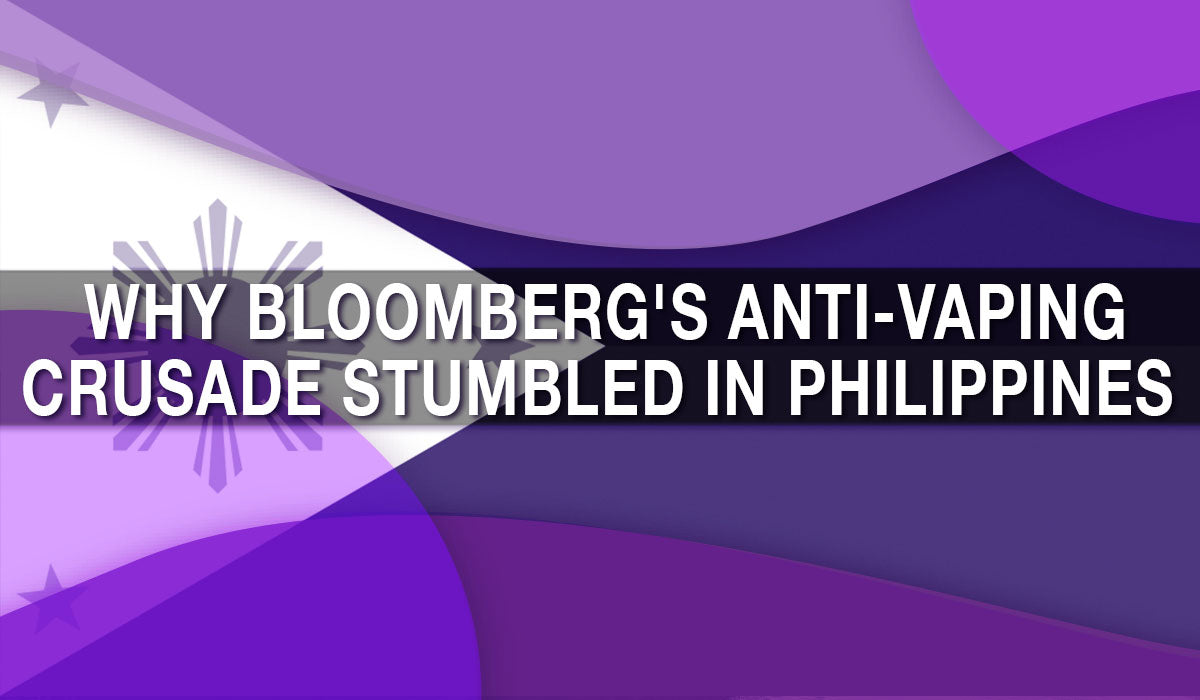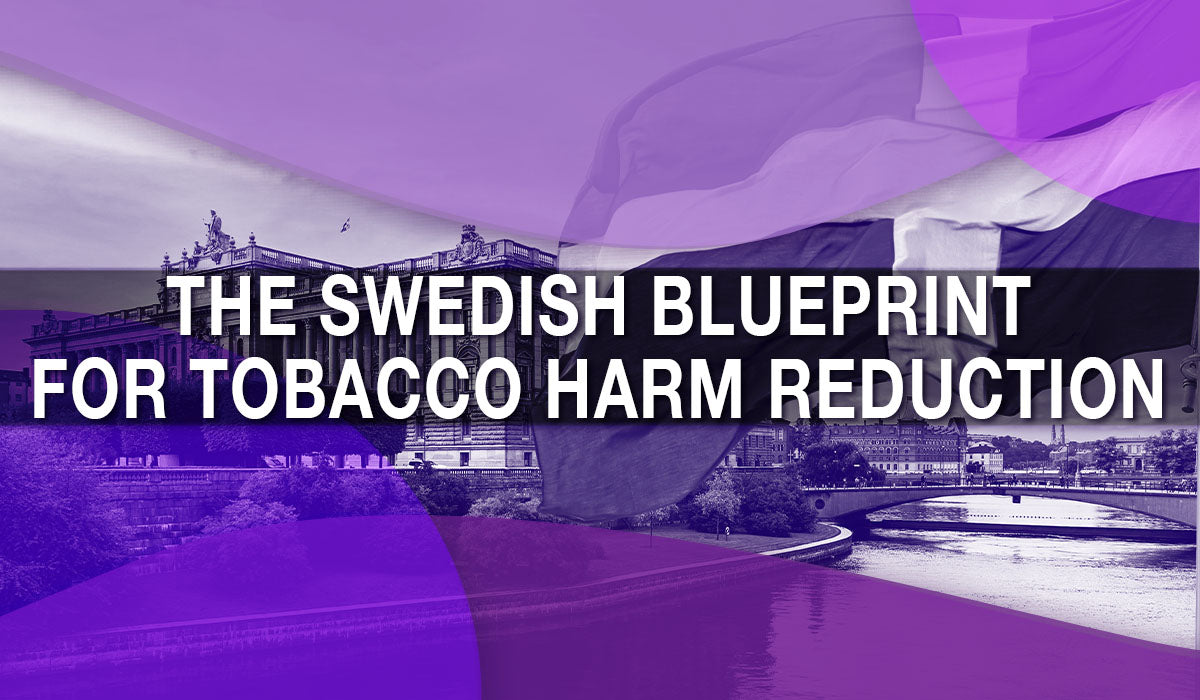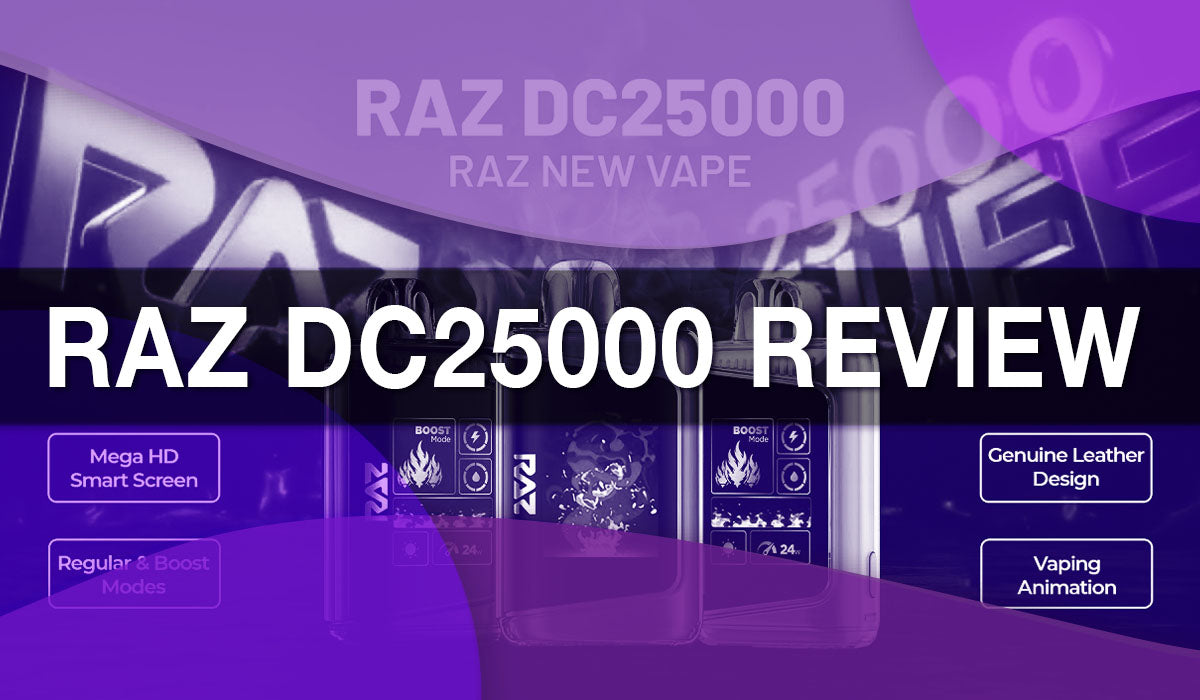
Why Bloomberg's Anti-Vaping Crusade Stumbled in Philippines
Countries like Sweden and the UK, whose National Health Service hosts the website Using Vaping to Quit Smoking, have provided an alternative blue print for how America can address the public health crisis that is smoking. As former FDA-Chief Scott Gottlieb pointed out recently on X:
Declines in smoking rates have started to stall ; if we're going to help more adults quit combustible cigarettes we have to embrace harm reduction and offer adult smokers modified risk nicotine products that don't have same risks as combusting tobacco 1/2 https://t.co/l3a1zmffqc
— Scott Gottlieb, MD (@ScottGottliebMD) February 26, 2024
This opinion, from a man who was no friend of the vape industry, coincides with Sweden’s embrace of the "No Smoke, Less Harm". This approach can save millions of lives according to a recently released study but is an absolute anathema to many US politicians and regulators.

This despite the fact that Swedish policies not only reduce cigarette consumption but have had a real impact on health outcomes.

Vaping versus Big Pharma
The U.S. continues to grapple with significant challenges in reducing smoking prevalence and related diseases. An overeliance on nicotine replacement therapy (NRT), which includes Big Pharma manufactured patches, gums, and various Nicorette products certainly does not help.
A groundbreaking 2019 study published in the New England Journal of Medicine found e-cigarettes to be many times more effective than NRT. Subsequent studies have verified their findings.
A study published in the Cochrane Database of Systemic Reviews looked at 88 previous studies that included 27,235 participants and found:
“High certainty evidence that e-cigarettes, which allow users to “vape” nicotine instead of smoke it, lead to better chances of quitting smoking than patches, gums, lozenges or other traditional NRT.”
Global Anti-Vaping Agenda
With the failures of NRT when compared to vaping in mind, the Philippines serves as a cautionary reminder that while real lives are at stake, “Quit or Die” nicotine abstinence groups stubbornly reject science-based public health initiatives and have the resources to promote their outmoded strategies.
There are many moving pieces when dealing with public health and cigarette smoking in the US. Big Tobacco of course has skin in the game, as cigarettes threaten to dip to only 50 percent of nicotine products sold in the next decade, they are working hard to eliminate the competition.

Our feature The Big Lies of Big Tobacco outline their state level efforts to ban the products most popular with adult vapers with PMTA Registry laws. An FDA study showed that vape flavor bans increase cigarette sales, making their motivations fairly transparent.

Significant money and societal control are on the line in the battle to control tobacco and public health policy. Sweden has moved independently from the rest of Europe with impressive results. Globally, Bloomberg philanthropies remains hard at work denying adults access to alternative nicotine products. The WHO is the largest recipient of his funds, providing an official stamp on the outmoded policies of a man whose organizations refuse to follow the science.
Not everyone kisses the WHO's ring. Public health experts in the UK pushed back hard on what they described as misinformation, as described by Science.org.
"The WHO has a history of anti-vaping activism that is damaging their reputation," Peter Hajek wrote in a statement released by the U.K. Science Media Centre.
Bloomberg Inference Rejected in Philippines
Regulatory capture is a form of corruption. It occurs when industries and special interest groups manipulate the public agencies meant to regulate them, skewing policies in favor of special interests over the public good.
Bloomberg funded lobbyists were perhaps too effective when promoting an anti-vaping agenda that just happened to promote the sale of the US pharmaceutical industry's NRT products in place of the now restricted electronic cigarettes.
The foreign grants from Bloomberg Philanthropies were provided in exchange for crafting the country's nicotine and related public health policies. In a country less accustomed to regulatory capture, a major corruption scandal followed. With as much as vaping is in the news, it is surprising that such a scandal was not covered by the US media.
Regulatory Capture Blocked By Vape Law
The Bloomberg vaping scandal ended reached its crescendo when the FDA Philippines, whose integrity was considered compromised by a majority of elected officials and citizens, was stripped of power by the Vaporized Nicotine and Non-Nicotine Products Regulation Act (VNP).
The extensive grants by Bloomberg philanthropies possibly violated US law as well, according to the Coalition for Asian Pacific Harm Reduction Advocates.
Prof. David Sweanor, advisory committee chair of the University of Ottawa Centre for Health Law and Policy in Canada was optimistically quoted about this incident in the Economic Times:
“It is essential that regulatory bodies have the trust of the public. Accepting foreign funding from sources with a vested interest in compromising the FDA’s independence can rapidly destroy that trust. In this case, the money ultimately comes from a US entity with an abstinence-only agenda on low-risk alternatives to cigarettes.”
Lobbyists Support Quit or Die Prohibition
Discussing this scandal, former director of Action on Smoking and Health (UK) Clive Bates said Michael Bloomberg, the American financial services billionaire is using his wealth to promote his beliefs about the prohibition of vaping products and a punitive “quit or die” approach to tobacco policy, but has very little experience on public health and has no real grasp of the lives of the people involved.
“Governments and their agencies should not take money from Bloomberg’s foundation or the worldwide complex of organizations that it funds,” Bates said, adding that “The duty of the Philippines FDA is to look after the welfare of Filipinos, not to take instructions from foreign advocacy operations.”
A Positive Legacy for Controversial Duterte?
With this much money and power at stake, the NGOs and lobbyists who accept money from Bloomberg philanthropies are not surrendering without a fight. Naturally, the bureaucrats and department heads at the FDA Philippines would like their broad mandate to control public policy back as well. Only in July of 2022 did the vape regulation pass into law.
Doctors Describe Historic Victory Against Outside Interference
As reported in the Manilla Bulletin, prominent Filipino doctors lauded the decision. Dr. Rafael Castillo, former president of the Philippine Heart Association-Philippine College of Cardiology and the Philippine Society of Hypertension, said the Vaporized Nicotine Products (VNP) bill, when signed into law, "will be a historic legislation that will become part of the legacy of the Duterte administration."
Former National Kidney and Transplant Institute Chief Executive Officer Dr. Dante Dator said the approval of the VNP bill by Congress is a historic win for public health as this will substantially diminish the impact of smoking on society.
Dr. Lorenzo Mata, President of the Quit For Good, said the VNP bill, which recognizes tobacco harm reduction (THR) as a pragmatic public health approach, “will inform millions of adult Filipino smokers about less harmful alternatives that are available and should be available to them, while the youth and non-smokers are protected."
Dra. Assunta Mendoza, past chairman of the Department of Anesthesiology at Manila Medical Center, said:
"As a medical practitioner who has seen countless of lives lost due to smoking, I support the government’s move to put an end to the smoking pandemic once and for all through the passage of the Vape Bill.”
US Policies Need to Follow the Science
The powerful science supporting the UK and Sweden’s harm reduction policies and the unmasking of the anti-vaping lobby’s suspect motivations in the Philippines must serve as a compelling call to action for Americans.
Lives, jobs, and public health are at stake. Policymakers and public health officials in the United States must reevaluate their approach to tobacco and nicotine products. By following Sweden's successes and embracing more humane and effective strategies, the U.S. can pave the way towards a healthier future for its citizens.
The Philippines serves as a cautionary reminder that while real lives are at stake, “Quit or Die” nicotine abstinence groups will continue to reject science-based public health initiatives and have the resources to promote their outmoded strategies.
Since passage in 2022, the VNP stands as a check on the prohibitionist impulses of Bloomberg funded lobbyists. It is not a perfect solution, as momentum grows for a disposable vape ban, but at least in this instance the motivations of self-proclaimed well-funded, white hat, anti-vaping crusaders was called into question by the citizens actually impacted by the their strong arm tactics.
US Reality Check
The Bloomberg-funded and Orwellian-named Truth Initiative continues to bombard US social media channels and the airwaves. Their colorful "commercials" invariably ignore the wide body of scientific and instead foist fundamentally biased if not outright inaccurate information such as Dr. Stanton Glantz's debunked heart attack study, on the unwitting public.









Leave a comment
This site is protected by hCaptcha and the hCaptcha Privacy Policy and Terms of Service apply.